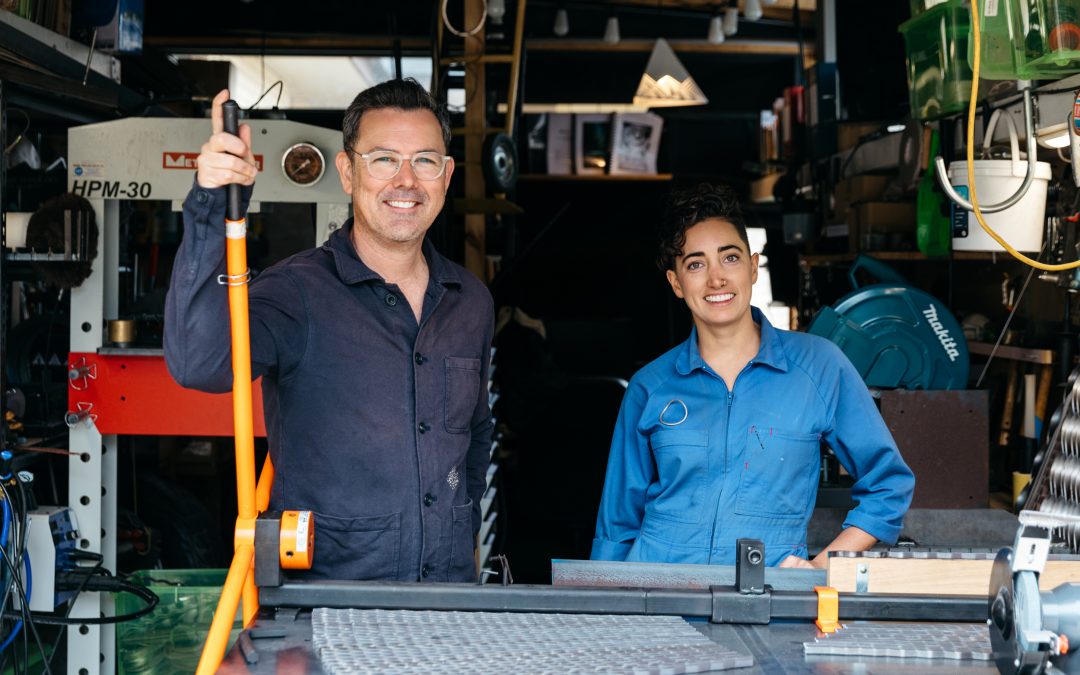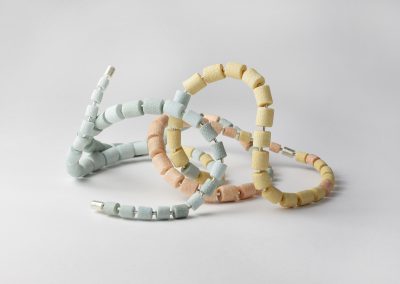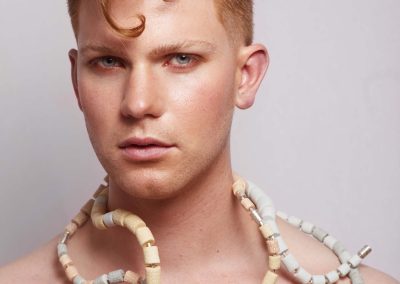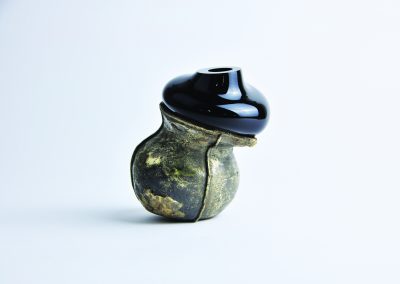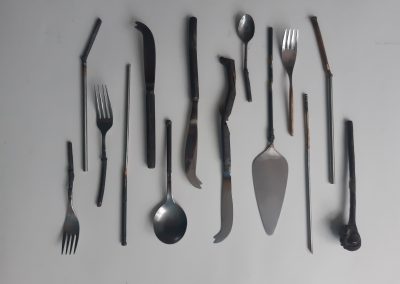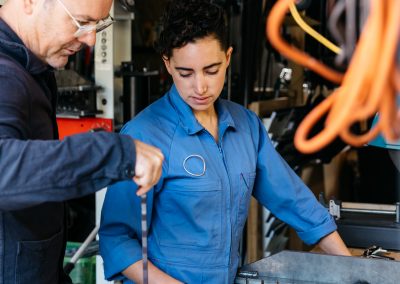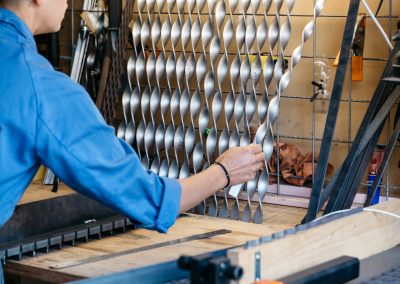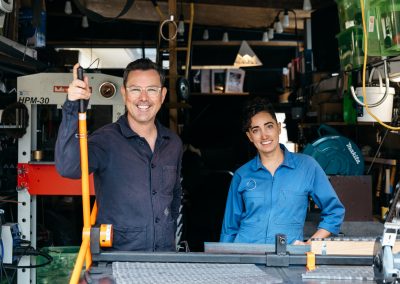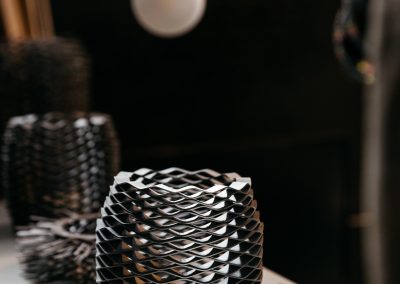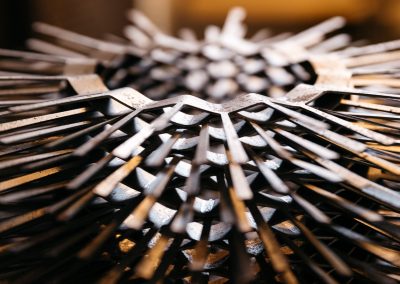Sarra Tzijan is an emerging Indian-Australian contemporary metal artist. She has been working with mentor jeweller and metalsmith Christian Hall to develop her technical and conceptual skills and establish her production practice.
We interviewed Sarra about what it’s been like to undertake a Catapult mentorship and the impact it has had on her practice so far.
Describe your practice.
Physically I make objects; wearable, functional and sculptural. The core of my work relies on process, relationships and story telling. My Indian heritage continues to provide an integral point of reference, informing my narrative and defining an authentic voice.
My practice has a foundation in contemporary metalwork, looking at the re-interpretation of ancient manual processes in the modern world. The objects I make span across jewellery, sculpture and design and I like to continually explore these intersections and boundaries. My approach is multi-disciplinary and collaborative; I encourage the influence of other hands and voices in my work. In a way I like to be reliant on external influences as it opens up new perspectives and unexpected outcomes. This approach to making also creates freedom and flexibility.
The concept of ‘Flow’ is important in my practice as it allows for spontaneity and free-play. Ultimately the work is about relationships; the energetic exchange from object-to-object, artist-to-artist and artist-to-object
What were your aims for your practice when you applied and did they change during the course of the mentorship?
My main goal was to create a product line of utensils and in doing so acquire new skills in metal fabrication. The other focus was general professional development as an early-career artist.
‘I feel my own practice has been allowed to expand in this environment. My expectations of criticality, creativity, and engagement for Sarra’s project and future as an artist have refreshed my own self-reflective process; sharpened my vision and led to a renewed excitement for my own work. The opportunity to share knowledge and skills, Sarra’s engagement in my practice, has lent a sense of relevance to my own experience and practice.’
How did you decide on and approach your mentor?
It was quite easy and clear for me! I’d been observing Christian’s practice since I came to Adelaide a few years ago, so I felt familiar with his approach and it seemed to resonate. I’d also met him several times so it helped that there was already a relationship.
What aspect of your mentorship has had the biggest impact so far?
In-person engagement and discussion has been most impactful for me. The focused conversation around practice and professional development has been pivotal. It has given me the opportunity to be open and vulnerable in a supportive environment.
What advice would you give artists who are considering undertaking a mentorship?
I would recommend a mentorship to anyone at any stage of their career but first ask yourself why – eg. for technical skills, conceptual development, new outcomes? I think being clear about what you want is important to know before you engage someone else.
Find someone you can develop trust with. Allowing yourself to be open is really important in creating growth. The relationship between mentor and mentee is mutually beneficial, so finding someone who can give and also receive is important.
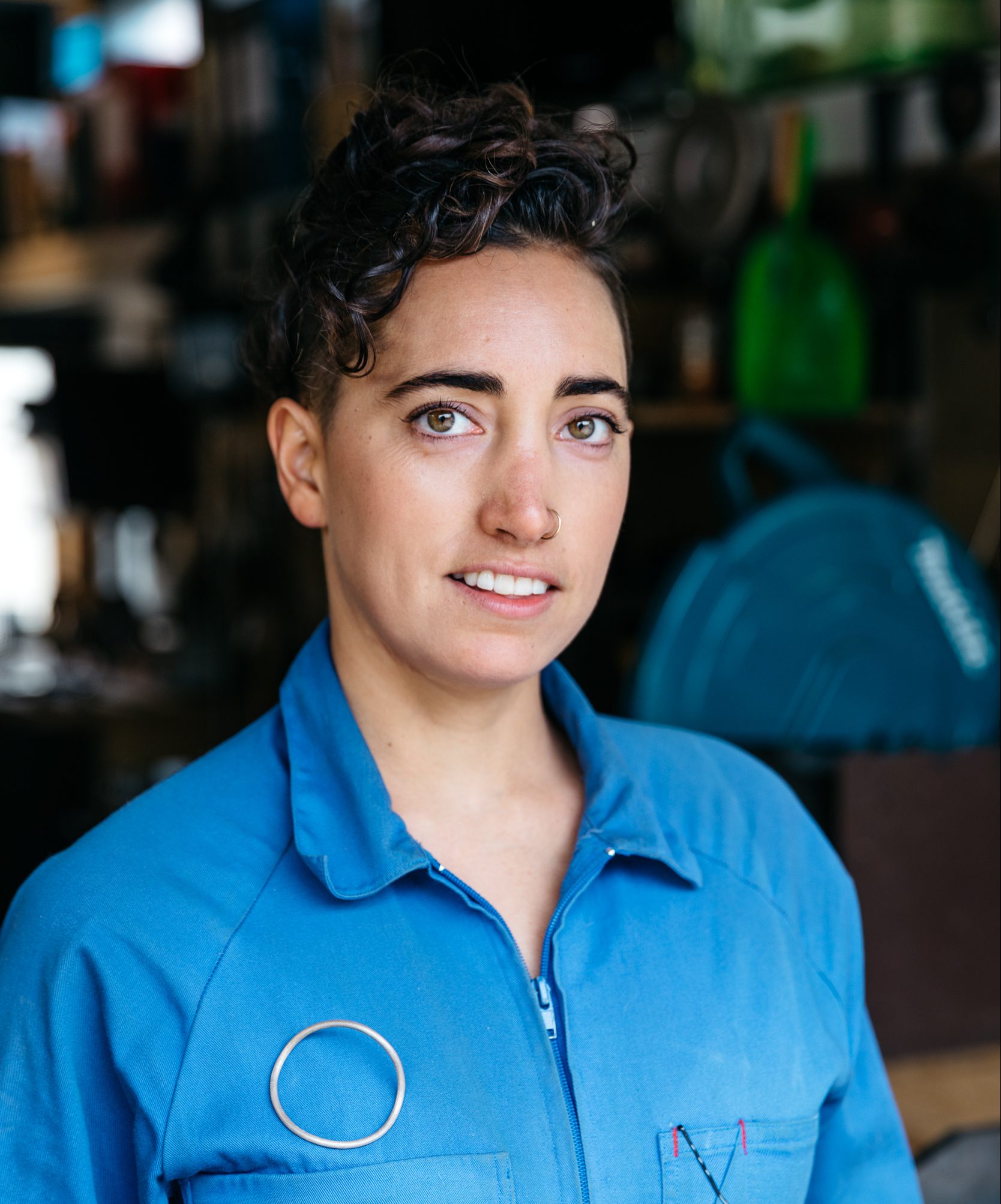
Sarra Tzijan
Sarra Tzijan is an emerging Indian-Australian contemporary metal artist originally from Melbourne, currently based in Adelaide. Tzijan’s practice spans across sculpture, jewellery and design and has exhibited works internationally. Tzijan’s tertiary education began with a Bachelor of Design at RMIT, followed by an Advanced Diploma of Object and Jewellery Design at Melbourne Polytechnic. Shortly after graduating, her wearable piece ‘String Theory’ was selected as a finalist in the Victorian Craft Awards in 2016. In 2017 Tzijan was selected to undertake the Associate Program at JamFactory. During the two years she developed her first contemporary jewellery collection, worked on studio commissions and taught as well as participated in workshops. Tzijan now practices out of a private studio as a JamFactory tenant. Late 2017 Tzijan undertook a metalwork residency in India that was funded by the Australian Council. The research and work developed there fuelled her first solo show in Melbourne, 2019. ‘Primal Casting’ was presented as part of Radiant Pavilion Jewellery and Object Festival. Mid 2019, Tzijan was involved in running a ceramic jewellery workshop with Ernabella Arts in participation with Tarnanthi Festival. In 2020, her sculpture ‘Village Vessel’ was selected as a finalist in the New Taipei City International Metal Crafts Competition. In early 2021, Tzijan will be showing new collaborative work developed with local ceramist Sam Gold at the Manly Art Gallery and Museum in Sydney.
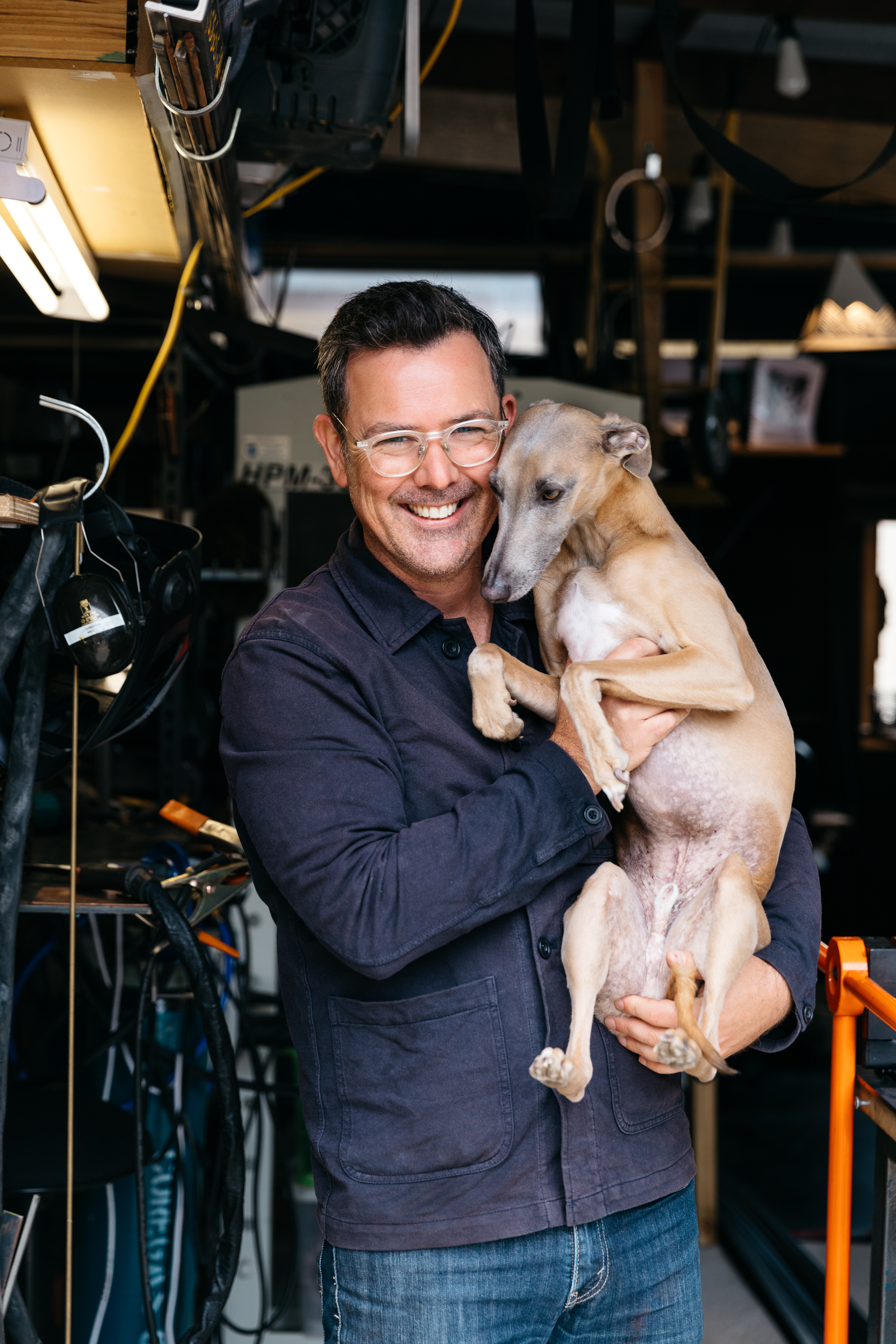
Christian Hall
Christian Hall is a studio-based visual artist working in the field of object art and design practice. Initially trained in jewellery and metal, his practice has evolved across the production of jewellery, everyday objects, sculpture and installation. He has pursued a multiple-stream model of practice incorporating production and commissioned works, teaching, mentoring and other areas of professional engagement. The foundation of his practice is an ongoing curiosity and experimentation with object making via a research-led, solo exhibition practice.
In sixteen years of professional practice, Christian has exhibited and been engaged in projects nationally and internationally, held teaching positions in TAFE and universities and worked as the Creative Director for JamFactory’s Jewellery and Metal Studio. He is a mid-career artist currently engaged in creative arts practice-based PhD research. His belief is that the visual arts as a form of research have pushed his practice to continually develop into new areas, technically, conceptually and across a topology of object-based practice. This contribution has been recognised via regular funding support from state, federal and overseas agencies since 2003.
Christain has a particular focus on skills-based and material-led practice and have predominantly practiced in the area of jewellery and metals.He gained his introduction to the field by training at Sydney College of the Arts with preeminent visual artists, the late Margaret West, and silver smith Helge Larsen from 1994-1998. He achieved his Masters under the supervision of Dr Mark Edgoose and Dr Karin Findeis in 2003. From these antecedents he has gained both a technical and critical perspective upon practice. Christian believes in the artists role as one that challenges the normative conventions of their area of practice and the broader social context. He seeks to nurture this criticality in every aspect of his work in the visual arts.


Images (L-R): Christian Hall and Sarra Tzijan, 2021, photograph Sia Duff; Sarra Tzijan, A Walk in the Desert, 2020, photograph courtesy the artist; Sarra Tzijan, Tzijan X Ash Weller, 2020, photograph Nicole Fang; Sarra Tzijan, Village Vessel No.6, 2019, photograph courtesy the artist; Sarra Tzijan, work-in-progress, 2021, photograph courtesy the artist; Christian Hall and Sarra Tzijan, 2021, photograph Sia Duff; Sarra Tzijan, 2021, photograph Sia Duff; Christian Hall and Sarra Tzijan, 2021, photograph Sia Duff; Christian Hall, studio shot, 2021, photograph Sia Duff; Christian Hall, studio shot, 2021, photograph Sia Duff; Sarra Tzijan, 2021, photograph Sia Duff; Christian Hall, 2021, photograph Sia Duff.

